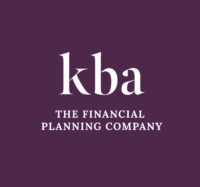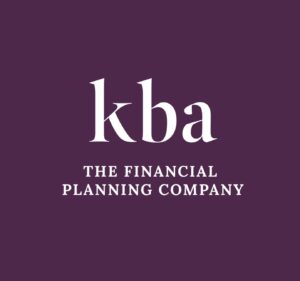Investing for children is one of the best presents you can give to the young people in your life.
Apart from the invaluable financial freedom they might enjoy, investing for children is also a fantastic way to help them learn important money lessons. As they get older, you can involve them in conversations and decisions about how and where their money is invested.
Capitalise on time with compound growth
Time is key to growing wealth through compound growth. As a result, if you invest for children early enough, you could give them the gift of a lifetime.
Taking advantage of the first 18 years of a child’s life will help to put them in a powerful position to generate more wealth. It could also make a big difference to their life choices in early adulthood.
They could use your financial gift to:
- Fund further education
- Get a firm step onto the property ladder
- Explore the world, without worrying about the cost of enjoying half-decent accommodation on the way.
The sooner you start investing for children, the longer the money will be invested and the more your grandchild could benefit in later life.
Stop and think about how and where to invest
Before you rush into putting money away for the children in your life, make sure you consider your own financial situation first.
Ask yourself these five questions:
- How much can you afford to save for others after your own needs have been met?
- Where and how do you want to save the money you put away?
- How much risk are you prepared to take in pursuit of better returns?
- What costs are involved in setting up, managing and accessing the investment?
- Do you want to make your investment plan tax-efficient?
Decide which investment vehicle will suit your goals
When investing for children, the main options are either a Stocks and Shares Junior ISA (JISA) or a child’s pension.
Invest through a Junior ISA
A JISA is a useful long-term investment vehicle that allows you to save up to £9,000 a year (2024/25).
Parents or guardians must open the JISA but once set up anyone can make payments into it.
One of the primary benefits of investing in a JISA is that you guarantee the money belongs to the child. Because the child is the ultimate owner of the JISA, only they are allowed to access the money.
Once they reach 18, they can withdraw the money. Alternatively, they can transfer the account to an adult ISA, keep the funds invested and continue to add payments into it on a regular or ad-hoc basis.
Whatever growth rate you achieve, there’s no disputing the long-term power of compound interest. If you can’t put away as much as £9,000 each year, save what you can into a JISA for your grandchildren and, over time, you should still see healthy growth while they are growing up.
Potential returns on a JISA
Imagine you invested the full available allowance of £9,000 (2024/25) into a JISA every year from the birth of your grandchild, and enjoyed investment returns of 5% a year. Figures from AJ Bell show that by the time they celebrate their 18th birthday the JISA could be worth £266,000 – allowing you to substantially boost their financial security as they enter adulthood.
Alternatively, you may prefer to drip feed money into a JISA.
Assuming 5% a year in investment growth, over 18 years you could save:
- £9,000 if you invested £25 a month
- £15,000 if you invested £50 a month.
The above sums assume all dividends are reinvested and don’t take account of fees, which will make some difference to the final sum.
Money invested in a JISA will be free of both Income Tax and Capital Gains Tax when your grandchild withdraws money. Alternatively, they can continue saving and benefiting from more compound interest by transferring their JISA to an adult ISA.
Start contributing to a pension
An alternative to a JISA is to invest into a pension. We see you shaking your head, but this isn’t as crazy as it sounds.
As with a JISA, the pension must be set up by the child’s parent or guardian but, once in place, you can pay money in and get tax relief on payments up to £2,880 each tax year. The government automatically tops up contributions by 20% – even for a child – so an annual payment of £2,880 automatically becomes £3,600.
Of course, you can pay in more than this but you’ll only get the tax gains on the first £2,880 you contribute, unless your child or grandchild happens to have earnings above this amount.
Potential returns on a child’s pension
According to figures from the Times Money Mentor, investing £300 a month (including the government top-up) into your grandchild’s pension, would mean you contribute the maximum £3,600 each tax year.
Investing this from birth until your grandchild’s 18th birthday would mean you’d have put away £64,800. Assuming average returns of 4.5% a year and an annual management charge of 0.75%, you could gift your grandchild a pension pot of £91,800 – and provide a very healthy start to their retirement savings before they’ve even commenced their career.
Get in touch
If you want to give the children in your life the gift of a lifetime and would like to discuss all the available options or the type of fund that might be suitable, please get in touch.
Email contactme@kbafinancial.com or call us on 01942 889 883.
Please note
This article is for general information only and does not constitute advice. The information is aimed at retail clients only.
HM Revenue and Customs’ practice and the law relating to taxation are complex and subject to individual circumstances and changes which cannot be foreseen.
An ISA is a medium to long term investment, which aims to increase the value of the money you invest for growth or income or both. The value of your investments and any income from them can fall as well as rise. You may not get back the amount you invested.
The value of investments and any income from them can fall as well as rise and you may not get back the original amount invested.
Approved by The Openwork Partnership on 31/10/2024.



